The struggle for space supremacy, cyber conflicts, and digital diplomacy are the topics that will close the International Relations Colloquiums on Wednesday, April 30, at the University of Minho, organized by the Center for International Relations Studies (CECRI).
The 46th edition of the oldest colloquium held at the University of Minho is dedicated to the theme “Emerging technologies and future generations: energy, security, and sustainability.”
Over three days, fifteen researchers in the field of international relations, both national and foreign, will debate some of the most current issues in international politics with professors and students.
April 30 will open with the panel “The New Space Race: The US, China, and the EU in the Global Competition for Space Supremacy” and will continue in the afternoon with the panel “From cyber conflicts to digital diplomacy: managing power competition in the digital age.”
It ends with a lecture entitled “Modern Techno-Authoritarian Ideologies,” given by José Luís Garcia.
“Climate Danger! Or: How We Learned to Stop Worrying and Love the Energy Transition” is the theme of the first panel on April 29, followed by ”Artificial Intelligence and Nuclear Energy: Bringing Innovation and Regulation Together.”
The second day of the colloquiums closes with a speech by Fernando Carvalho Rodrigues, known as the “father” of the first Portuguese satellite, entitled “From Republic to Empire: The Wars of the Triumvirates.”
The International Relations Colloquiums began on April 29 with a debate on the lethality of new weapons incorporating artificial intelligence used in the conflicts in Ukraine and the Gaza Strip. The speakers were Marijn Hoijtink, Professor of International Relations at the University of Antwerp, and Verity Coyle, from the London-based Secretariat of Amnesty International.
In addition to the lethality of new weapons, the normative issue associated with their use was also discussed.
The opening session of the colloquium was addressed by the president of the School of Economics, Management and Political Science, Luís Aguiar-Conraria, the director of the Bachelor's Degree in International Relations, José Palmeira, and the president of CECRI, Matilde Almeida.
The first day also featured a presentation by anthropologist Susana de Noronha, from the Center for Social Studies at the University of Coimbra, entitled “In three days, everything will change: emerging technologies at the intersection of art and social sciences.”
This edition of the colloquiums coincides with the celebrations of the 50th anniversary of the creation, at the University of Minho, of the Bachelor's Degree in International Relations (1975-2025), a pioneer in Portugal in this field of knowledge, conceived by Professor Lúcio Craveiro da Silva, who was the first directly elected rector of Portuguese universities.

